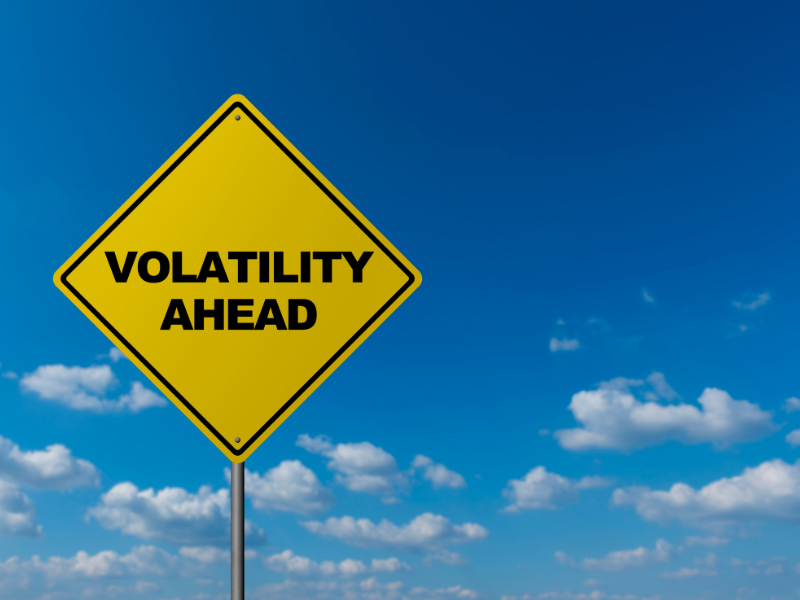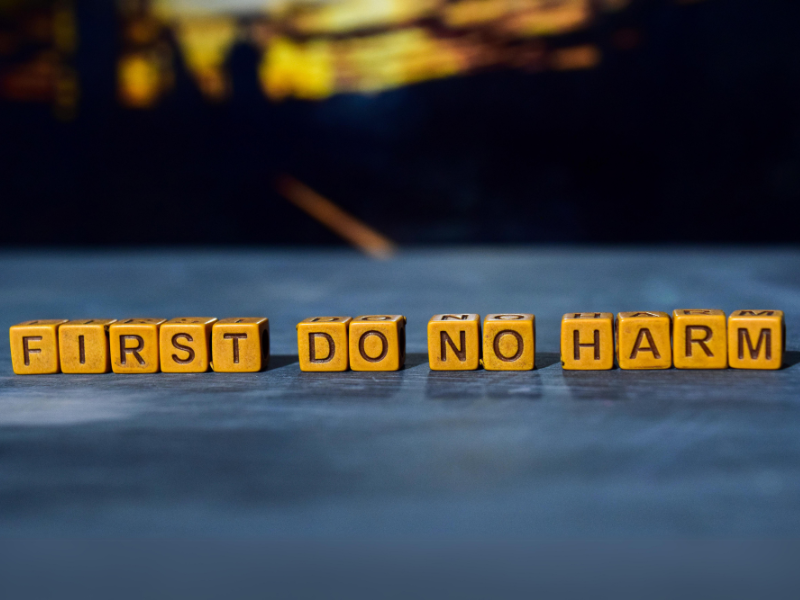
Types of Anger
Contents
Introduction
Anger is a universal emotion experienced by everyone, manifesting as annoyance, frustration, or outrage. However, a common misconception is that anger only results in shouting or violent behavior. In reality, anger is much more complex and nuanced. It can be channeled constructively or expressed in ways that exacerbate negative outcomes. Our methods of expressing anger are often influenced by our upbringing or by observing what we should avoid.
In this article, we will explore ten common types of anger, each with its own distinct characteristics and effects. We’ll provide practical tips for managing each type to help you handle it more effectively and improve your interactions. By understanding these types, you can learn to channel your anger constructively and reduce its negative impact.
10 Common Types of Anger to Be Aware of
- Assertive Anger
- Passive Aggressive Anger
- Volatile Anger
- Chronic Anger
- Judgmental Anger
- Retaliatory Anger
- Overwhelmed Anger
- Self-Abusive Anger
- Explosive Anger
- Habitual Anger
Assertive Anger
Assertive anger is a constructive form of anger that allows individuals to express their feelings clearly and directly without being aggressive. This types of anger is communicated through “I” statements, such as “I feel angry when…” It helps in setting boundaries, addressing issues effectively, and fostering positive outcomes in relationships. Unlike other forms of anger, assertive anger promotes healthy dialogue and conflict resolution, making it a powerful tool for personal and interpersonal growth.
Tip to manage it
Continue using clear and calm communication to express your anger, focusing on resolving issues constructively. Practice active listening to understand the other person’s perspective and work together towards a solution.

Example: If a colleague takes credit for your work, you could say, “I feel frustrated when my contributions aren’t acknowledged. Can we discuss how to ensure we both get credit?” This approach helps address the issue calmly and constructively.
Passive Aggressive Anger
Passive-aggressive anger is characterized by indirect expressions of anger, such as sarcasm, silent treatment, or procrastination. Instead of confronting the issue openly, the person may avoid direct conflict, leading to unresolved tension and frustration. Over time, this avoidance can result in a build-up of resentment and a toxic environment. Passive-aggressive behavior often harms relationships by fostering a negative atmosphere and preventing effective communication.
Tip to manage it
Recognize when you’re feeling angry and confront the issue directly with honest, open communication. Avoid using indirect methods like sarcasm or silent treatment, which can lead to further resentment. Practice expressing your feelings clearly and constructively to prevent misunderstandings

Example: If a friend consistently arrives late to meetups, instead of using sarcasm or giving them the silent treatment, you might say, “I feel frustrated when our plans are delayed. Can we discuss a way to manage our time better?” This direct approach helps address the issue and fosters clearer communication.
Volatile Anger
Volatile anger involves sudden, intense outbursts that can be disproportionate to the situation. These emotional explosions are often triggered by minor irritations and may be followed by feelings of regret or guilt. The unpredictability of volatile anger can damage relationships and create a hostile environment, as those around the individual may feel unsafe or unsure of when the next outburst will occur. Over time, this types of anger can strain both personal and professional relationships.
Tip to manage it
Practice mindfulness and relaxation techniques to reduce the intensity of your anger and gain better control over your emotions. Identify and address triggers that lead to outbursts by keeping a journal or reflecting on your reactions. Develop coping strategies, such as deep breathing exercises or taking a timeout, to manage stress and prevent explosive reactions

Example: If a minor mistake at work causes an intense outburst, practicing mindfulness and deep breathing can help you stay calm and avoid overreacting. Reflecting on triggers and using relaxation techniques can prevent such explosive reactions and improve relationships.
Chronic Anger
Chronic anger is a persistent form of anger that remains simmering beneath the surface for extended periods. This type of anger can be directed at various aspects of life, leading to constant irritation, negativity, and frustration. Chronic anger can have detrimental effects on one’s physical and mental health, contributing to issues such as high blood pressure, anxiety, and depression. It often leads to strained relationships and an overall diminished quality of life.
Tip to manage it
Seek professional help to explore the root causes of your chronic anger and develop effective strategies for managing it. Engage in regular self-care practices, such as exercise and relaxation techniques, to reduce overall stress. Work on identifying and addressing sources of ongoing frustration or irritation in your life.

Example: If you frequently feel irritated and frustrated at work and home, seeking therapy can help uncover underlying issues contributing to your chronic anger. Regular exercise and relaxation practices can also help manage stress and improve your overall well-being.
“Unchecked anger can cloud our judgment and lead to decisions we later regret. It’s essential to find healthy outlets for expressing anger to avoid long-term consequences.”
Dr. Rachel Bryant, Clinical Psychologist
Judgmental Anger
Judgmental anger arises from a sense of superiority or a strong desire to criticize others. It often manifests as harsh, critical thoughts or comments aimed at individuals who do not meet one’s standards or expectations. This type of anger can create distance in relationships, as it fosters a negative atmosphere and can lead to feelings of resentment or alienation among those targeted. Judgmental anger often stems from unmet expectations or unresolved personal issues.
Tip to manage it
Cultivate empathy by actively seeking to understand others’ perspectives and experiences. Challenge your own biases and assumptions to reduce critical tendencies. Practice reflective exercises to become more aware of judgmental thoughts and work on replacing them with compassionate responses.

Example: If you feel anger towards a colleague for their work habits, you might criticize them harshly. Instead, try understanding their perspective and acknowledging their challenges. Cultivating empathy and addressing your own assumptions can lead to more constructive interactions and improved relationships.
Retaliatory Anger
Retaliatory anger is a reactive form of anger that occurs in response to feeling wronged or mistreated. It is driven by a desire for revenge or payback, which can escalate conflicts quickly and lead to further harm. This type of anger often perpetuates a cycle of retaliation, making it difficult to resolve conflicts constructively. Retaliatory anger can cause significant damage to relationships and may lead to ongoing tension and hostility.
Tip to manage it
Pause before reacting to ensure that your response is thoughtful and measured. Focus on resolving the issue constructively rather than seeking revenge or escalating the situation.

Example: If someone cuts you off in traffic and you respond by aggressively tailgating them, it escalates the conflict. Instead, take a moment to calm down and focus on safely navigating the situation. Addressing the issue calmly can help prevent further escalation and maintain your safety.
Overwhelmed Anger
Overwhelmed anger occurs when the demands of life become too much to handle, leading to feelings of frustration, helplessness, and anger. This type of anger often arises when stress and pressure build up to a breaking point, making it difficult to cope with even minor irritations. Overwhelmed anger can lead to burnout, emotional exhaustion, and strained relationships if not managed effectively. It is important to recognize the signs of being overwhelmed and take proactive steps to manage stress.
Tip to manage it
Break tasks into smaller, manageable steps to reduce feelings of frustration and helplessness. Prioritize your tasks and set realistic goals to avoid feeling overwhelmed. Seek help from friends, family, or professionals when needed to share the load

Example: If you’re juggling multiple projects at work and home, feeling overwhelmed might lead to outbursts over small issues. To manage this, break tasks into smaller steps, prioritize them, and seek support from colleagues or loved ones to share the burden and reduce stress.
“Anger that is left unchecked can build up over time, leading to a range of health problems. It’s essential to address and manage anger to prevent it from affecting your physical and mental well-being.”
Dr. Emily Williams, Clinical Psychologist
Self-Abusive Anger
Self-abusive anger is directed inward and often results in negative self-talk, self-harm, or destructive behaviors. This type of anger stems from feelings of guilt, shame, or low self-worth and can be particularly harmful to one’s mental and physical health. Over time, self-abusive anger can lead to a cycle of self-punishment, exacerbating feelings of inadequacy and further damaging one’s self-esteem. It is important to address the underlying issues that contribute to this type of anger.
Tip to manage it
Focus on developing self-compassion by practicing positive self-talk and recognizing your own worth. Engage in activities that reinforce self-esteem and build a positive self-image. Seek professional support, such as therapy, to address underlying issues contributing to self-abusive tendencies

Example: If you criticize yourself harshly for a work mistake, it can worsen feelings of inadequacy. Instead, practice self-compassion and seek therapy to improve self-esteem and address underlying issues.
Explosive Anger
Explosive anger is characterized by intense, sometimes violent outbursts that can cause significant harm to oneself or others. This type of anger involves a loss of control and is often triggered by situations that may seem minor to others. The aftermath of explosive anger can include feelings of regret, shame, and damaged relationships. Over time, repeated explosive episodes can lead to social isolation and a breakdown in personal and professional relationships.
Tip to manage it
Seek professional help to learn anger management techniques and incorporate regular physical activity to release built-up tension and prevent explosive outbursts.

Example: If a minor disagreement leads to a violent outburst, it can damage relationships and cause regret. To manage this, seek professional help for anger management and engage in regular physical activity to release tension and prevent explosive reactions.
Habitual Anger
Habitual anger occurs when anger becomes a regular, almost automatic response to various situations. This type of anger can become deeply ingrained, leading to frequent conflicts, a generally negative outlook on life, and strained relationships. Habitual anger often stems from unresolved issues or long-standing frustrations that have not been addressed. Over time, it can lead to chronic stress and a diminished quality of life.
Tip to manage it
Reflect on your anger triggers and work on developing healthier, more constructive responses to challenges and frustrations.

Example: If you frequently react with anger to minor annoyances, such as daily traffic or small inconveniences, this habitual response can strain relationships and create a negative outlook. To manage it, reflect on what triggers your anger and practice developing healthier ways to handle challenges.
Understanding & Managing Your Anger
Unresolved anger, regardless of its type, can have harmful effects on both your mental health and relationships, particularly when it turns into displaced anger. Over time, unchecked anger can also lead to chronic health issues. Working with a therapist can help you identify the type of anger you’re experiencing, understand its root causes, and develop strategies for effective management.
If self-help strategies aren’t working, therapy might be a beneficial option. Online therapy offers a convenient and accessible way to start addressing your anger. counsellingcollective is an online platform that provides affordable and flexible therapy services. With the support of a counsellingcollective therapist, you can learn practical techniques to manage and overcome your anger issues.
Conclusion
Understanding the various types of anger is crucial for effectively managing this complex emotion. By recognizing how different forms of anger manifest and impact relationships, you can employ strategies to handle anger constructively. Embracing techniques like clear communication, mindfulness, and self-compassion can significantly improve your emotional well-being and interactions with others. Learning to manage anger positively will contribute to healthier relationships and a more balanced life.
References
- American Psychological Association. (2020). Understanding types of anger: Signs, symptoms, and how to manage it.
- Beck, A. T. (1976). Cognitive therapy and emotional disorders. International Universities Press.
- Goleman, D. (1995). Emotional intelligence. Bantam Books.
- Hanh, T. N. (1975). The miracle of mindfulness: An introduction to the practice of meditation. Beacon Press.
- LeDoux, J. (1996). The emotional brain: The mysterious underpinnings of emotional life. Simon & Schuster.
- Rogers, C. (1961). On becoming a person: A therapist’s view of psychotherapy. Houghton Mifflin.
- Rosenberg, M. B. (2003). Nonviolent communication: A language of life. Puddledancer Press.
- Sapolsky, R. M. (2004). Why zebras don’t get ulcers: The acclaimed guide to stress, stress-related diseases, and coping (3rd ed.). Holt Paperbacks.
- Solomon, R. C. (1993). The passions: Emotions and the meaning of life. Hackett Publishing.
